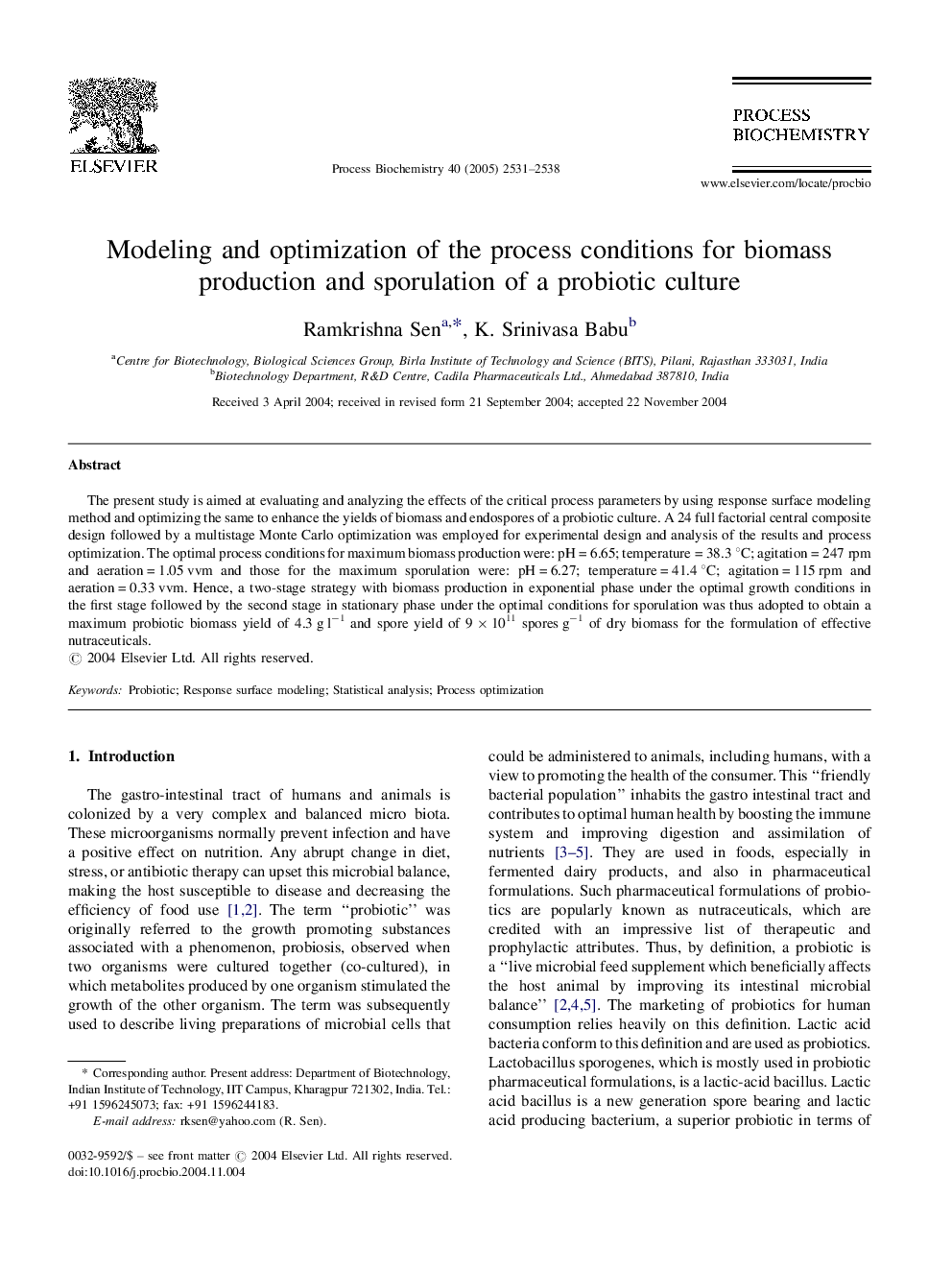| Article ID | Journal | Published Year | Pages | File Type |
|---|---|---|---|---|
| 36560 | Process Biochemistry | 2005 | 8 Pages |
The present study is aimed at evaluating and analyzing the effects of the critical process parameters by using response surface modeling method and optimizing the same to enhance the yields of biomass and endospores of a probiotic culture. A 24 full factorial central composite design followed by a multistage Monte Carlo optimization was employed for experimental design and analysis of the results and process optimization. The optimal process conditions for maximum biomass production were: pH = 6.65; temperature = 38.3 °C; agitation = 247 rpm and aeration = 1.05 vvm and those for the maximum sporulation were: pH = 6.27; temperature = 41.4 °C; agitation = 115 rpm and aeration = 0.33 vvm. Hence, a two-stage strategy with biomass production in exponential phase under the optimal growth conditions in the first stage followed by the second stage in stationary phase under the optimal conditions for sporulation was thus adopted to obtain a maximum probiotic biomass yield of 4.3 g l−1 and spore yield of 9 × 1011 spores g−1 of dry biomass for the formulation of effective nutraceuticals.
